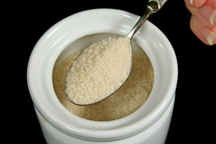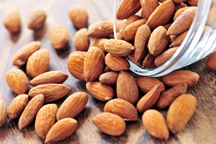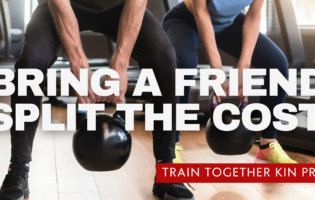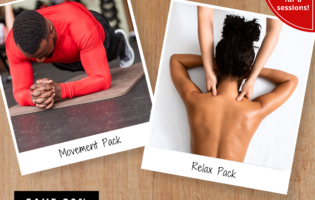Total Therapy Blog
Gearing up for the Run… Nutrition for the Run
 Welcome to our sixth part of “Gearing Up for the Run”. We are excited for the upcoming Vancouver Sun Run and hope you are too! Last article, we talked about what to do when you become injured while running. This week, we take a spin on gearing up for the run, instead of focusing on the mechanics of running, we will focus on the nutritional side of things. If you have missed our previous 5 articles, you can find them here: Part 1, Part 2, Part 3, Part 4, Part 5.
Welcome to our sixth part of “Gearing Up for the Run”. We are excited for the upcoming Vancouver Sun Run and hope you are too! Last article, we talked about what to do when you become injured while running. This week, we take a spin on gearing up for the run, instead of focusing on the mechanics of running, we will focus on the nutritional side of things. If you have missed our previous 5 articles, you can find them here: Part 1, Part 2, Part 3, Part 4, Part 5.
The past few articles, we’ve been focusing on the mechanics of running – the “moving” side of the equation. This article, we’ll explore the other side of the equation – fuelling your body for movement. For any ‘sustained’ activity, you need the right fuel. Not only that, but you need nutrients to rebuild muscles post-workout. For running, your fuel-of-choice should include carbohydrates, essential nutrients and electrolytes.
 A common belief is that prior to a race, you need fast, easy sugars – so-called “simple sugars”. The reasoning behind this is that simple sugars provide instant energy, improving performance. This is not the case. In fact, simple sugars can slow you down in two ways. Firstly, simple sugars can cause water retention by “holding” water in the stomach, leaving you feeling bloated. Secondly, simple sugars cause insulin spikes in response to simple sugars flooding your blood stream. As a result, your blood sugar peaks then drops suddenly, leaving you feeling sluggish and fatigued. In addition to this, the secretion of insulin causes your body to burn through muscle glycogen faster (your muscle’s stored fuel). If your glycogen levels drop too early in a race, you’ll barely make it to the finish line.
A common belief is that prior to a race, you need fast, easy sugars – so-called “simple sugars”. The reasoning behind this is that simple sugars provide instant energy, improving performance. This is not the case. In fact, simple sugars can slow you down in two ways. Firstly, simple sugars can cause water retention by “holding” water in the stomach, leaving you feeling bloated. Secondly, simple sugars cause insulin spikes in response to simple sugars flooding your blood stream. As a result, your blood sugar peaks then drops suddenly, leaving you feeling sluggish and fatigued. In addition to this, the secretion of insulin causes your body to burn through muscle glycogen faster (your muscle’s stored fuel). If your glycogen levels drop too early in a race, you’ll barely make it to the finish line.
Sources of simple sugars are: honey, refined sugar, molasses, corn syrup, and high fructose syrup.
You’d think that these things would be easy enough to avoid, but simple sugars show up in surprising places. For example, sports drinks can have as much as 10 tablespoons of refined sugar in them. Many ‘protein’ bars contain 60% or more refined sugar.

So what should you eat? For running, most adults should aim to have 65% to 70% of their diet comprised of complex carbohydrate. Complex carbohydrates include any type of food that has the nutrients, water, and fibre left intact (e.g. not processed out). Examples include fruit, whole grains, and most vegetables. This is particularly important prior to race, where you’re looking to build up your energy reserves. While the actual amount differs slightly depending on the age, gender, and level of fitness, you can use the 65-70% rule as a guideline.
For an average adult who consumes 2, 000 calories a day, this would translate to 1, 300 – 1, 400 calories a day from complex carbohydrates.
Ex: 2,000 calories x 0.65 (or 0.70) = 1,300 (or 1,400)
 The day of the race, choose a whole grain like steel-cut or rolled oats and add seeds, nuts, or yogurt for an extra protein-kick. Couple this with a piece of fruit, and you’re on your way. Alternatively, if you’re looking for a lighter meal, try a home-made smoothie with fruit, protein (e.g. yogurt or tofu) and a mild-flavoured green like kale for additional nutrients. The proper mix of complex carbohydrates with a bit of protein will keep you fuelled up and your blood sugar levels stable so you don’t crash part way through the race. Make sure you give your body at least 45 minutes digest any pre-race food – that way, your stomach won’t be running at full tilt while your legs are trying to do the same.
The day of the race, choose a whole grain like steel-cut or rolled oats and add seeds, nuts, or yogurt for an extra protein-kick. Couple this with a piece of fruit, and you’re on your way. Alternatively, if you’re looking for a lighter meal, try a home-made smoothie with fruit, protein (e.g. yogurt or tofu) and a mild-flavoured green like kale for additional nutrients. The proper mix of complex carbohydrates with a bit of protein will keep you fuelled up and your blood sugar levels stable so you don’t crash part way through the race. Make sure you give your body at least 45 minutes digest any pre-race food – that way, your stomach won’t be running at full tilt while your legs are trying to do the same.
Remember – how you fuel your run is as important as how you run. By incorporating complex carbohydrates into your diet, you can maximize your training and get the most out of your race-day experience. Happy trails!
What’s your favourite race-day meal? What diet tricks have you tried before and how did they work for you? Share with us in the comment section below.








Follow Us!
& Stay Up To Date
BLOG